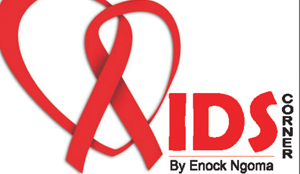 ON April 17, 2014, the Commission on Population and Development of the United Nations sent to me the following report which I thought I can share it with you the reader:
ON April 17, 2014, the Commission on Population and Development of the United Nations sent to me the following report which I thought I can share it with you the reader:
The 47th session of the Commission on Population and Development ended last week on Saturday in New York, USA, with a call from governments to promote gender equality and sexual and reproductive health and reproductive rights as key priorities for sustainable development.
The commission urged world leaders to integrate these rights into the new development framework that will replace the Millennium Development Goals, which are set to expire in 2015.
The week-long commission was convened at the UN headquarters in New York to assess 20 years of progress since the ground-breaking agreements made at the International Conference on Population and Development (ICPD) in Cairo in 1994.
To move the vision of Cairo forward, the commission called on governments to respect, protect, and fulfill the human rights of women and girls, including sexual and reproductive health and reproductive rights, and to address persistent inequalities and “discrimination on any grounds,” including the existence of unfair and discriminatory laws.
The commission also called on governments to train and equip health-service providers to ensure that, in circumstances where abortion is not against the law, abortion is safe and accessible, and to intensify efforts to achieve universal access to HIV prevention, treatment, care, and support without stigma and discrimination.
IPPF Director General Tewodros Melesse said that while the agreement further recognised the centrality of the Cairo Programme of Action to sustainable development, more could be done to promote and protect the rights of women, men and young people, especially their sexual and reproductive rights and health.
“At this critical juncture in the post-2015 process governments have renewed the commitments made in Cairo in 1994 and since.
“The right to control one’s fertility and sexuality is fundamental to social and sustainable development and governments have agreed it should be a core part of the next development agenda.
“Now we need strong leadership from governments to lead us into the next fifteen years.”
Throughout this week’s negotiations, many governments expressed strong support for advancing sexual rights and 59 governments explicitly called for action to end discrimination and violence on the basis of sexual orientation and gender identity.
The calls came from countries as diverse as the Philippines, South Africa, the Pacific Islands, Viet Nam, Nepal, Mongolia, Suriname, the United States, Australia, Norway, the European Union, and most Latin American countries.
These calls build on similar agreements made during regional reviews of ICPD in Latin America and the Caribbean and Asia and the Pacific in 2013.
However, a small but vocal group of countries blocked language on sexual rights from the final agreement – a move that elicited strong rebukes from several government delegations during the closing plenary.
Governments will reconvene in September at the UN General Assembly to renew political support for the actions required to achieve the goals of the ICPD program of action.
Before I say bye, just a reminder that the 2nd Science Symposium on May 2nd and 3rd will be held at the Golden ridge hotel in Lusaka, Zambia and will cover various topics encompassing HIV epidemiology, pathogenesis, host-virus interactions, immune responses to infection, disease progression, opportunistic infections, co-infections, vaccine design and current treatment strategies.
This world class workshop is hosted by ZARF (Zambia AIDS Research Foundation) and TALC (Treatment Advocacy and Literacy Campaign).
The workshop takes place at a time when Zambia is making headways in the precention and treatment of HIV and is meant for Zambians to know more about the epidemic.
Issues such as the once “dreaded” lumbar puncture procedure will also be covered.
If you would like to attend this important symposium, you can call 0977399766.
For comments on any HIV/AIDS related issues get in touch with me on knoxngoma@gmail.com or call/SMS 0955883143






